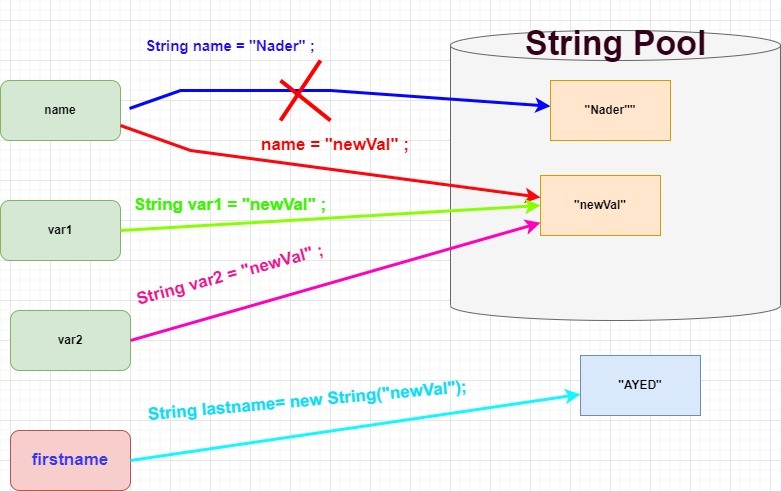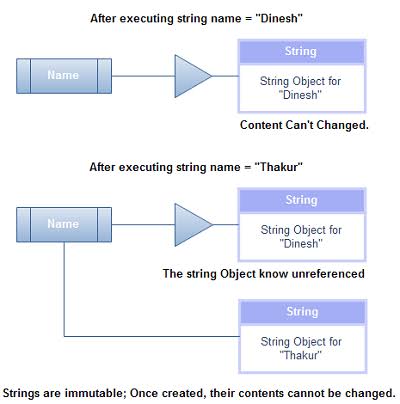Discovering the Benefits of Immutable Strings in Modern Shows Paradigms
In the world of contemporary programs standards, the idea of immutable strings stands as a cornerstone of robust software program advancement. The advantages they supply surpass simple comfort; they fundamentally modify the method data is taken care of within applications. By embracing unalterable strings, developers can guarantee improved information stability, enhanced string safety and security, simplified debugging procedures, increased security actions, and effective performance optimization. These benefits work as a testament to the profound effect that accepting immutability can carry the reliability and performance of software application systems.
Improved Information Stability

By protecting against the modification of string items, immutability gets rid of the threat of unintentional changes to the information they hold. This not only enhances the safety of the information but additionally enhances the integrity of the code that depends on these strings.
Immutability also sustains more secure multithreading settings, as concurrent accessibility to immutable strings does not posture the danger of information corruption through synchronised adjustments. This home simplifies the procedure of taking care of strings in parallel programming situations.
In significance, immutability acts as a protective guard around the data stored within strings, improving their honesty by making sure that when specified, their values continue to be unchanged throughout the program's execution.

Improved String Safety
Unalterable strings enhance the string safety of programs by making sure that once a string object is produced, its worth can not be changed. This residential property eliminates the risk of concurrent strings attempting to change the same string concurrently, which can result in information corruption or inconsistent states in the program - Why are strings immutable in Java?. In a multi-threaded atmosphere, where numerous strings accessibility and manipulate information simultaneously, the immutability of strings gives a degree of safety and security by guaranteeing that the data remains the same throughout its lifecycle
Simplified Debugging Procedures
Given the enhanced string security promoted by unalterable strings, a considerable benefit arises in the realm of simplified debugging processes. Immutable strings, once produced, can not be modified, making it easier to trace the circulation of information and recognize the source of insects in a program. This immutability guarantees that strings continue to be regular throughout the implementation of the program, decreasing the probability of unforeseen adjustments that could cause errors.
When debugging with mutable strings, designers usually their explanation run into concerns where a string's worth is customized accidentally, making it challenging to pinpoint the source of a pest. However, with unalterable strings, the information continues to be unmodified, permitting developers to concentrate on analyzing the real reasoning of the code instead than tracking down where and when a string was modified improperly.
Additionally, immutable strings streamline the debugging procedure by making it possible for less complicated reproduction of insects. Considering that immutable strings do not transform state, programmers can recreate and research bugs better, causing quicker recognition and resolution of problems within the codebase. This streamlined debugging workflow eventually adds to greater software application high quality and improved overall growth effectiveness.

Raised Safety And Security Measures
Enhancing information protection and strengthening system stability, the utilization of unalterable strings in software application applications contributes significantly to raised safety actions. Immutable strings additionally play an essential role in preventing usual security susceptabilities such as barrier overflows and SQL injection strikes, as attempts to manipulate string data at runtime are inherently limited.
Moreover, the immutability of you can look here strings boosts the predictability of program habits, making it easier to verify inputs and prevent unanticipated adjustments that might compromise safety. This predictability simplifies the process of auditing and verifying code, allowing programmers to recognize potential safety and security loopholes better. Generally, integrating unalterable strings right into software program development methods not only enhances the effectiveness and integrity of applications yet likewise reinforces their resilience against safety and security dangers.
Reliable Efficiency Optimization
Building upon the foundation of boosted safety actions attained with the utilization of immutable strings, an essential facet to think about in software application growth is effective performance optimization. When taking care of mutable strings, procedures like concatenation or substring development commonly result in the production of brand-new string things, causing memory overhead and increased processing time. Nonetheless, with unalterable strings, these operations can be maximized to boost efficiency. By allowing strings to stay continuous and stable, immutable strings assist in much better memory administration and caching opportunities, eventually improving the general efficiency of the software application.
Given that immutable strings can not be modified when created, they can be shared throughout strings without the risk of unexpected modifications, decreasing the demand for synchronization mechanisms and boosting concurrency. Immutable strings simplify debugging procedures as designers can rely on that a string's worth will certainly remain constant throughout the program's implementation, getting rid of potential mistakes caused by mutable state adjustments.
Conclusion
To conclude, the advantages of using unalterable strings in contemporary programs standards can not be overemphasized. Improved data stability, boosted thread security, simplified debugging procedures, increased security procedures, and efficient performance optimization all add to the overall efficiency of programming tasks. By integrating immutable strings into shows methods, developers can profit from a much more dependable and durable codebase.
Immutability, a vital feature of strings visit this website in programming languages such as Java and Python, makes certain that when a string item is developed, it can not be changed or modified.Immutable strings enhance the string security of programs by guaranteeing that as soon as a string object is created, its worth can not be modified. Unalterable strings likewise play an essential function in avoiding usual safety susceptabilities such as barrier overflows and SQL injection assaults, as attempts to adjust string data at runtime are naturally restricted.
By enabling strings to continue to be continuous and stable, unalterable strings assist in far better memory administration and caching chances, inevitably improving the total effectiveness of the software application.
Immutable strings simplify debugging processes as developers can rely on that a string's value will continue to be consistent throughout the program's execution, removing potential mistakes caused by mutable state modifications.